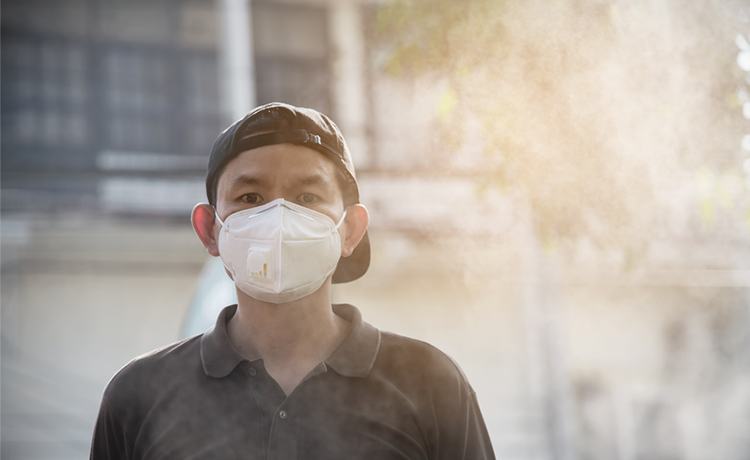A report commissioned by the Mayor of London and carried out by Imperial College London researchers – particularly its Environmental Research Group – discovered that there is a link between long-term air pollution exposure and how sick a person can become when they get infected by Covid-19. The study focused on animals that were exposed to and inhaled pollutants. This results in an increase in the protein spikes that allow the Covid-19 virus to attach itself to the lungs.
Additionally, researchers also connected their findings to increasing evidence proving that exposure to air pollution can lead to risks related to lung and heart diseases. Individuals with existing respiratory and cardiovascular ailments are more susceptible to contracting Covid-19, and they can be affected worse than those with lesser exposure to air pollution and respiratory and cardiovascular risks.
More than anything else, the research findings indicate that people who were previously exposed to air pollution for long periods are more likely to get ill and require hospitalisation.
Covid-19 resiliency and the ULEZ
London Mayor Sadiq Khan sees the findings as an indication of the importance of managing air pollution and building Covid-19 resilient communities. He further discussed how air pollution has long been known for causing a variety of diseases and illnesses: asthma, lung disease, cancer, and other respiratory problems. The study also reveals more effects of long-term exposure to air pollution: increased risks to infectious diseases such as bronchitis and pneumonia, and Covid-19.
The mayor further stated that Imperial’s research findings are a clear reason for the expansion of the ULEZ or the Ultra-Low Emission Zone, which will be implemented on October 25th 2021. The mayor believes that the best way to build resilience to Covid-19 and other viruses is by reducing and eventually eliminating toxic emissions. The expanded ULEZ can help bring this goal closer to fruition.
The Ultra-Low Emission Zone is an expanded Clean Air Zone (CAZ). Originally, it was implemented in April 2019 and covered Central London’s Zone 1 area. Drivers with vehicles that do not meet the emissions standards need to pay a set fee whenever they drive within the said zone.
With the expanded ULEZ, the area covered is larger: with Central London as the starting point and going all the way to the areas between the South Circular and North Circular Roads. (The circular roads, though, are not included in the expanded zone.)
The main objective of the expanded ULEZ is to reduce and ultimately eliminate toxic emissions, particularly nitrogen oxides.
Nitrogen oxides are dangerous
Nitrogen oxides are emitted by vehicles. They are dangerous to both the environment and human health. NOx is predominantly composed of nitric oxide (NO) and nitrogen dioxide (NO2). When they work together, they can form acid rain and smog and may even be responsible for the formation of ground-level ozone. Ground-level ozone can cause global warming, which can in turn lead to climate change.
NOx poses several risks to human health. It can lead to aggravated asthma and respiratory problems such as bronchitis, pneumonia, and emphysema. Nitrogen oxides emissions may also cause lung problems, cardiovascular diseases, and mental health-related issues such as depression and anxiety.
The biggest contributor to toxic NOx is road transport. This is why the Dieselgate scandal which broke out in 2015 is a controversial incident that gravely affected the quality of air in London.
Dieselgate scandal
Also known as the emissions scandal, Dieselgate is a term coined after the U.S. Environmental Protection Agency (EPA) discovered cheat software in diesel vehicles of one of the most popular car brands in the world, Volkswagen.
VW’s alleged defeat devices were intended to manipulate emissions test results when their vehicles are subjected to lab tests. The software automatically minimises emissions once it detects that the car it’s installed in is being tested. Under real-world driving conditions however, the amount of NOx emitted by the vehicles exceeds the legal limit.
The Mercedes Benz emissions scandal is just one of the aftereffects of the VW Dieselgate. Despite the lawsuits, fines, and payouts, though, Mercedes-Benz continues to deny the allegations hurled against them. Other manufacturers alleged to have used defeat devices include Fiat, Audi, Porsche, Peugeot, Nissan, Suzuki, Vauxhall, Alfa Romeo, BMW, Ford, Jeep, and Renault.
The defeat devices in these manufacturers’ vehicles are responsible for destroying the quality of air in London.
What you can do
If you want to help reduce toxic emissions and contribute to Covid-19 resiliency, you can do so by ensuring that your car is not installed with a defeat device. Visit your manufacturer’s website. Most of the car manufacturers have a list of affected models on their site. Mercedes-Benz even has an entire page dedicated to the Dieselgate Mercedes scandal.
If you find your car in the list of affected vehicles, the best thing to do is to find a team of emissions experts that can help you make a diesel compensation claim. Filing a claim will help you get what your manufacturer owes you – in exchange for them lying to you about your car being environment friendly. However, if you want to increase your chances of a successful claim, you should work with the team at Emissions.co.uk, as they are highly trained and experienced handling even the most challenging emissions claims.





